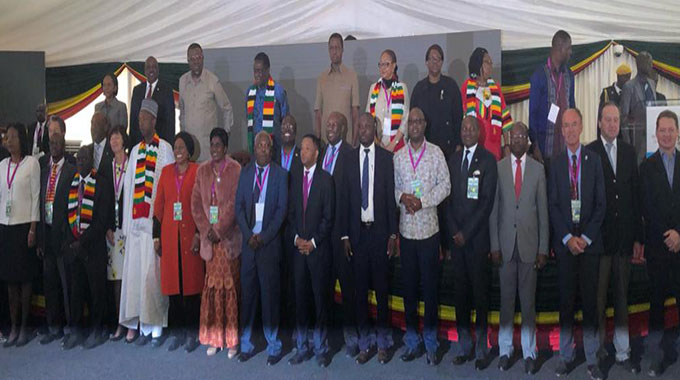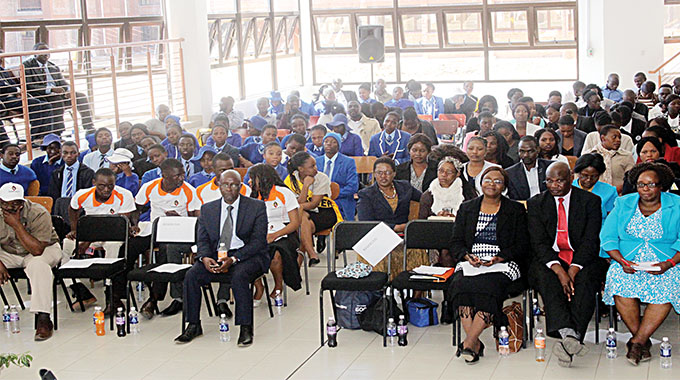African leaders seek wildlife ‘new deal’

Leonard Ncube, Victoria Falls Reporter
HEADS of State attending the inaugural African Union-United Nations Wildlife Economy Summit here have said Africa needs to adopt a paradigm shift to encourage community participation in wildlife management.
Speaking during a Heads of State panel discussion soon after the official opening of the conference yesterday, President Emmerson Mnangagwa and his counterparts Presidents Mogkweetsi Masisi (Botswana), Edgar Lungu (Zambia) and Hage Geingob (Namibia) who is also the Sadc chairperson concurred that a “new deal” in Africa is needed so that countries can sell their ivory and use the money to compensate people for property destroyed by wildlife.
In separate presentations, the Heads of State said there is a need for a balance between human and wildlife rights because communities feel insecure, since some were displaced to make way for game parks.
President Mnangagwa said there is need for a model of wildlife management.
He said the wildlife story of Southern Africa resembles the Biblical story of creation and commended Africans for diligently guarding their wildlife.
“Southern Africa has kept God’s promise in the Bible by keeping wildlife as was communicated to on creation by God. As such, it’s unfair to get punished for being good to God’s promise.
“Zimbabwe has more than 30 000 elephants and this will lead to human-wildlife conflict, so we say let’s not have a one-size fits all for every situation. Let’s adjust. These animal products are valuable, let’s capacitate trade. To succeed we need to have a model of management which is acceptable to us and other participants at the Convention of International Trade in Endangered Species (Cites),” he said.
President Mnangagwa said the free movement of wildlife in the Kavango-Zambezi Trans frontier Conservation Area (Kaza-TFCA) calls for a common position.
President Geingob said more rights should be given to humans than animals. He said the continent is now being led by a new wave of listening leaders.
“In New Africa we are seeing here a third wave of Africa leadership.
“The first wave was that of extraordinary nationalists who liberated the continent from colonialism followed by the Cold War and military coups era which was characterised by confusion and we regard ourselves as third wave leaders because we have to be involved.
“People are living with animals and they must co-exist but not fight.
“We want people to be involved as we are also involved as Presidents. Animals especially in Europe have more rights than people, in Namibia this causes human-wildlife conflict as people want compensation,” said President Geingob with his counterparts in agreement.
President Masisi said the “new deal” will maximise benefits for communities.
“For us as Botswana, this new deal is not only refreshing but timely because we now have a stage where we want to view economies where communities and wildlife are connected.
“We are compelled by a deep belief system that people must benefit so they are defenders and nurturers of that economy as we grow the cake,” said President Masisi.
He said for long Governments have been on a collision course with their people because of human-wildlife conflict hence the need for a paradigm shift.
“Let’s commit to go full throttle and continue to renew this partnership. Community rights with regard to wildlife economies must form a new paradigm so as to contribute to Sustainable Development Goals,” he added.
This was echoed by President Lungu who called for mechanisms to protect people as only a few were benefiting from wildlife.
“It’s a concern that a few elite are benefiting from wildlife. Poaching is rampant because the ordinary communities are not benefiting from wildlife hence there is little appreciation of benefits of wildlife,” he said.
— @ncubeleon










Comments